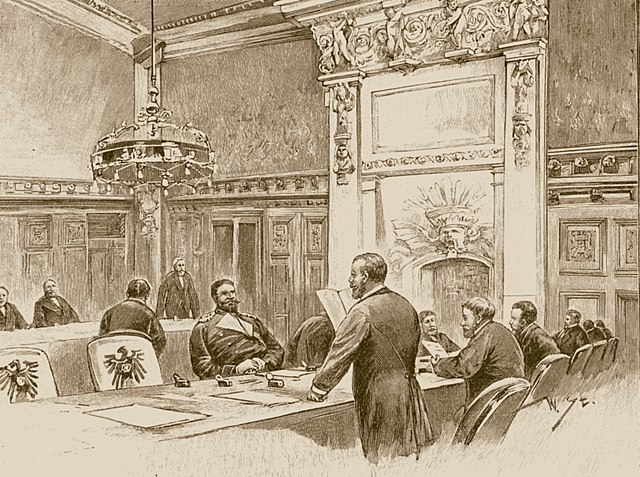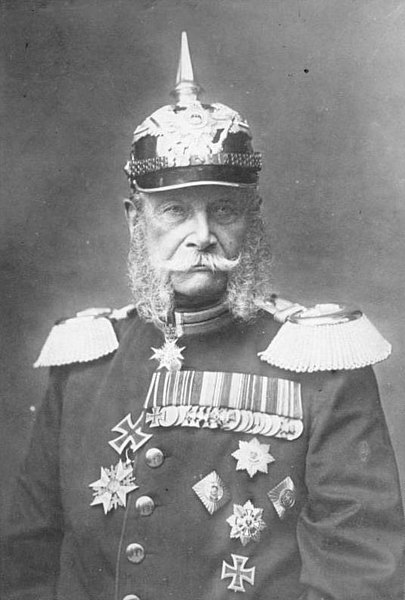Constitution of the German Empire
The Constitution of the German Empire was the basic law of the German Empire of 1871–1918, from 16 April 1871, coming into effect on 4 May 1871. German historians often refer to it as Bismarck's imperial constitution, in German the Bismarcksche Reichsverfassung (BRV).
First and last page of the constitution of 1871, with the signature of Wilhelm, German Emperor and King of Prussia
Emperor Wilhelm I
The chamber of the Bundesrat in the Reichstag building, 1894
Reichstag in 1889
The German Empire, also referred to as Imperial Germany, the Second Reich or simply Germany, was the period of the German Reich from the unification of Germany in 1871 until the November Revolution in 1918, when the German Reich changed its form of government from a monarchy to a republic.
The German colonial empire in 1914
Chancellor Bismarck
Wilhelm I in 1884
Die Proklamation des Deutschen Kaiserreiches by Anton von Werner (1877), depicting the proclamation of Emperor William I (18 January 1871, Palace of Versailles). From left, on the podium (in black): Crown Prince Frederick (later Frederick III), his father the emperor, and Frederick I of Baden, proposing a toast to the new emperor. At centre (in white): Otto von Bismarck, first Chancellor of Germany, Helmuth von Moltke the Elder, Prussian Chief of Staff.








